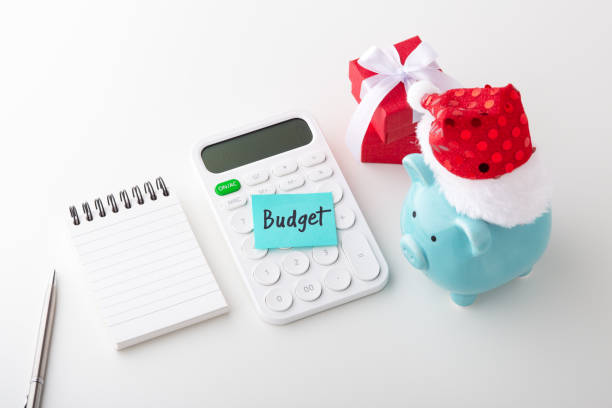The festive season, with Christmas and New Year around the corner, is a time for joy, celebration, and spending time with loved ones.
However, it can also bring the pressure of spending more than we plan for, especially with all the gift shopping, festive meals, travel plans, and holiday activities.

It’s easy to get caught up in the excitement, but without a budget, you might find yourself overwhelmed by expenses long after the holidays are over.
That’s where a little planning comes in handy!
1. Set Clear Spending Limit
Before you dive into holiday shopping or booking travel plans, decide how much you are willing to spend overall. This could include gifts, decorations, meals, and any travel expenses.
Setting a limit will help guide your decisions and keep you from splurging on items you don’t need. Be realistic about what you can afford without overextending yourself.
2. Make Gift List and Stick to It
One of the biggest holiday expenses is buying gifts, and it can quickly get out of hand if you’re not careful.
To stay on track, make a list of everyone you need to buy gifts for, and set a spending limit for each person.
Stick to your list and avoid impulse purchases that could break your budget. Consider making homemade gifts or offering experiences like cooking a meal together to save money.
3. Plan For Holiday Meals
Food plays a big role in the festive season, but holiday meals can be expensive. Plan your meals in advance and create a shopping list to avoid buying unnecessary items.
If you’re hosting a big dinner, consider sharing the cost with family or friends by making it a potluck. You’ll save money and enjoy a variety of dishes without overspending.
4. Watch For Deals and Discounts
The holiday season is full of sales, promotions, and discounts, which can be a great way to save money on gifts, decorations, and other items.
Keep an eye out for special offers, and take advantage of them when they fit within your budget.
Be cautious of sales that encourage you to spend more than you initially planned. If it’s not on your list, it’s probably best to skip it.
5. Track Your Spending
As you start shopping, eating out, and making plans, it’s important to keep track of your spending. Write down every purchase and update your budget regularly.
This will help you stay aware of where your money is going and allow you to adjust if you’re getting too close to your limit.
Use budgeting apps or a simple spreadsheet to make the process easier.
Also read: How To Avoid Online Shopping Scams

